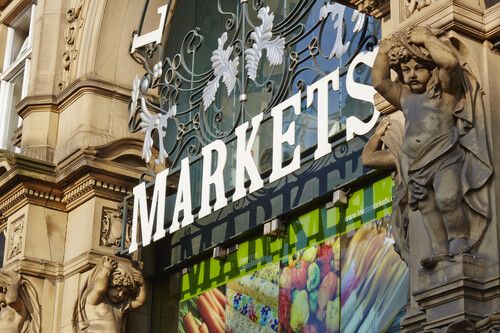Social value research informs London regeneration plans

The research, which highlights the value of markets to local communities, supported a new report by London Assembly.
The report, ‘Social value in planning and regeneration: Knowing the price of everything and the value of nothing’, references the work of Sara González, Professor in Human Geography, on how social value should be embedded in the planning processes for the benefit of communities.
The Assembly took a particular interest in the extent the social value of London’s retail markets and railway arches—places that deliver high social value for local communities—are protected and enhanced through planning and regeneration, to ensure regeneration enhances, rather than erodes, the social fabric of the capital.
It recommends that the next London Plan should include a social value policy, which sets out how community voices are heard in planning decisions.
Problems of gentrification
Professor González has been researching traditional retail markets in the UK for over 10 years. Initially, her research uncovered a trend for the gentrification of these markets, how they have become more upmarket, targeting younger people and those with more disposable income, selling increasingly niche and gourmet products and many undergoing major redevelopments.
Although this appears as a positive change, it also masks that the long-term customers of markets, often older and lower-income people, have been displaced and outpriced and many of the long-term traders serving them too.
People told the researchers that they feel less lonely when they visit markets and they value them more than other local amenities like the local pub or library.
Professor González, said, “Traditional markets contribute to increased footfall in high streets and generally provide a sense of local pride and identity for many towns. Our research aims to safeguard and enhance the future of markets, providing market operators with evidence that supporting these markets in policy can have a beneficial social, economic, and cultural impact, particularly for less privileged groups.

“For this research, I often worked in partnership with community groups (particularly in London), campaigning to preserve these markets as affordable and inclusive. I have worked in close collaboration with my former colleague, Myfanwy Taylor, a research fellow at the University of Leeds who is now a lecturer at the Bartlett School of Planning, UCL, London.”
Markets in the UK should not be a feature of the past. There should be a market in every town and city, providing affordable fresh food, safe and inclusive social interaction and supporting businesses that deliver community value.
“We uncovered that people go out of their way to shop at markets as they value the affordability and quality of fresh produce. We also showed how people socialise in markets, very often speaking to people they don’t know, exchanging news, advice and interacting with people of different ethnic groups. People told the researchers that they feel less lonely when they visit markets, and they value them more than other local amenities like the local pub or library. The research found that these benefits were more important for low-income groups, those with long illnesses or the older groups of customers”
Markets can reduce isolation, boost health and job creation
The work revealed that when markets get redeveloped, they often neglect this community value and the customers that most benefit from it. It also revealed that markets can contribute to a variety of policy agendas that local authorities focus on: reducing social isolation, food security, public health, entrepreneurship and job creation.
The Planning and Regeneration Committee’s report recommends that the next London Plan ‘ensure that regeneration projects can create new environments that support local people to meet, socialise, innovate, grow and learn whilst preserving those assets that already provide these services.’

Professor Gonzalez said, “Markets in the UK should not be a feature of the past. There should be a market in every town and city, providing affordable fresh food, safe and inclusive social interaction and supporting businesses that deliver community value.
“There are over 1,000 markets across the UK, many in a situation of change and transformation, with many local authorities deciding what to do with their markets.
“Our research aims to safeguard and enhance the future of markets, providing market operators with evidence that supporting these markets in policy can have a beneficial social, economic, and cultural impact, particularly for less privileged groups.”




